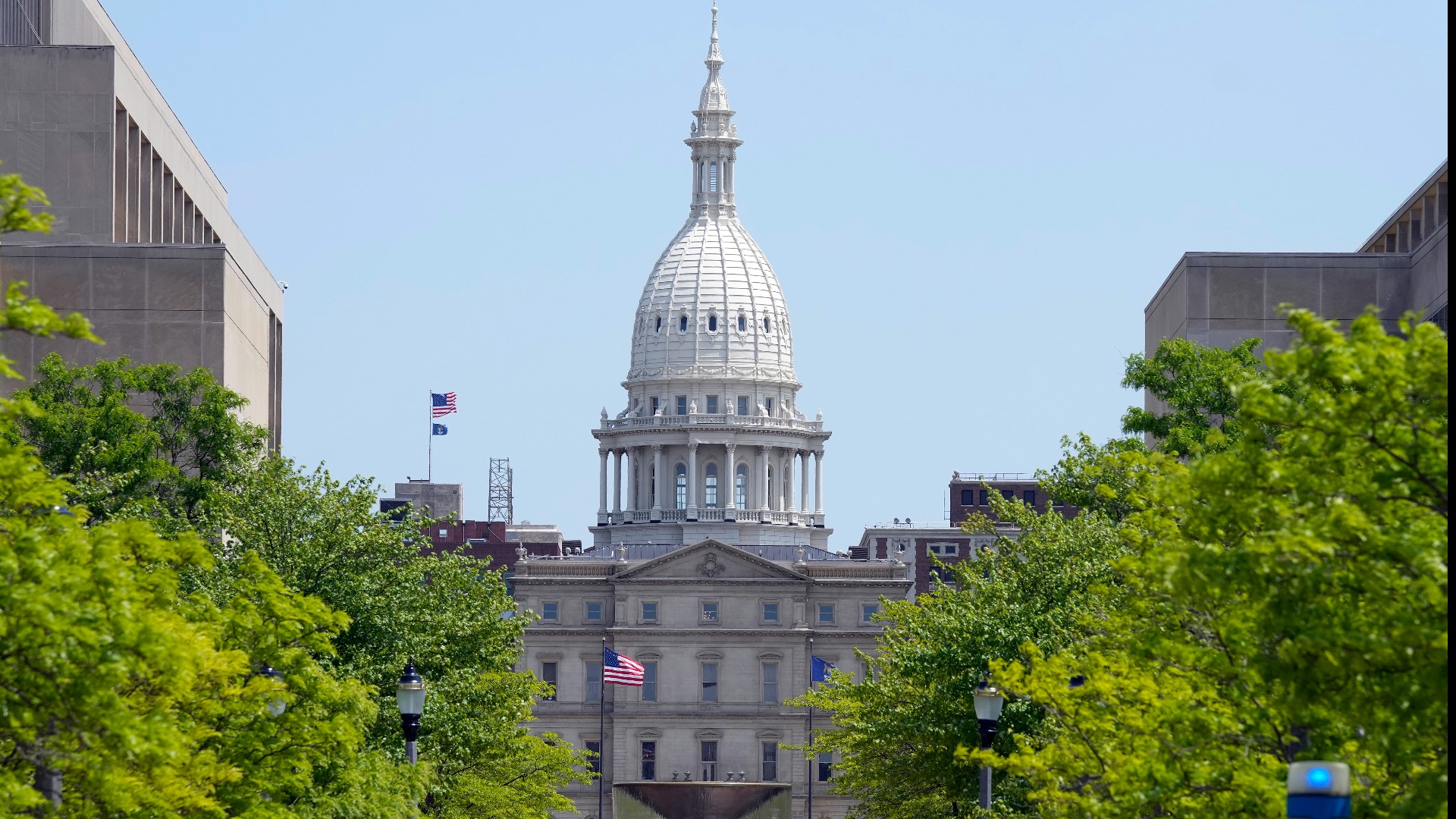Spring Lake Township, with its Lake Michigan shoreline and proximity to Spring Lake and the Grand River, has much to cherish.
The township’s 14,300 citizens want to protect the character of their affluent neighborhoods from the summer weekend bacchanals that have increasingly been invading their hometown.
“Every board meeting we had last year, we had considerable public comment about short-term rentals. The first hearing, we had 40 people. The second, it was 220 people,” said township Supervisor John Nash. “The bottom line is simple: Who pays for the enforcement, the medical responders? The people who live beside the short-term rentals who don’t want them there. Let’s say you want to buy a house in a nice neighborhood and all of sudden it’s full of rentals. The fabric of the community starts to go down and the owner of the rental lives in Timbuktu. They don’t care.”
After eight months of study and debate, the township voted unanimously in December to pass an ordinance that limits, but doesn’t outright ban short-term rentals in the community. It was the town’s best solution to a problem that township officials are sure will explode even more as online rental sites such as VRBO and Airbnb begin to proliferate.
But then, the state Legislature introduced a pair of bills in the House and Senate earlier this year that would limit local communities’ abilities to set rules and regulations for short-term rentals. It’s just the latest measure that preempts local ordinances, in favor of statewide rules that communities must live by.
Republicans, who are the primary sponsors and supporters of the local preemption bills, say they’ve proposed the limits on local officials to avoid patchwork regulations across the state.
“We’re trying to avoid a patchwork of having to do things one way in one county and another way in another county,” said Senate Majority Leader Arlan Meekhof, R-West Olive. “If everybody gets treated differently, then that makes it hard for anybody to do business.”
Sen. John Proos, R-St. Joseph, who sponsored a bill that would prohibit local communities from telling employers what they can ask — or not ask —prospective employees during job interviews, said he wants to avoid such regulations that cities like Philadelphia and San Francisco have passed as a means to close the wage gap between men and women.
“The established federal and state guidelines provide plenty of protections and guidance involving the hiring and firing process,” he said. “When individual municipalities establish additional regulatory structures, it only costs businesses and industry. And in the long run, that means they don’t hire people.”
But Democrats and local officials say Republicans in the state Legislature are trying to micromanage them.
“This state has absolutely shirked its duty to provide government to the people. They’ve passed the burden and the mandates on to us without the corresponding resources,” said Andy LaBarre, an Ann Arbor Democrat and the chairman of the Washtenaw County Board of Commissioners, referring to rules and regulations passed by the state, leaving local governments to absorb the costs. “And then they’re shocked when we respond with ordinances that help us run our cities.”
Sen. Rebekah Warren, D-Ann Arbor, has opposed the bills that take away power from local governments, saying the state doesn’t always know best.
“We sort of feel like we’re a local control state. We’ve got communities that are really different and we’re supposed to trust our local government elected officials to know what’s right for the character of their communities,” she said. “What’s really hard for my community is that the state hasn’t really kept up their commitment to provide revenue sharing, coupled with property tax revenues going down. We’re taking away tools from local governments to fix that.”
Some examples of the state preempting local ordinances:
- The “Death Star” bill that bans local communities from passing ordinances regarding wages, benefits or work rules for companies operating in their towns passed the Legislature with only Republican votes in 2015. Many cities had passed ordinances calling for companies in their towns to pay “living wages,” or a minimum wage higher than the one set by the state. But the bill made all those ordinances moot.
- The plastic bag bill, which prohibits local communities from passing ordinances that would place a tax on plastic bags used by retailers to package goods for their customers. Again, with only Republican votes, the bill nullified an ordinance passed by the Washtenaw County Board of Commissioners in 2016 to impose a 10-cent fee on most plastic bags. The county estimated it costs about $200,000 a year to deal with plastic bags in the community — not only cleaning them up, but also because of downtime when the bags clog up recycling machinery. The ordinance was scheduled to take effect in April 2017, but the state passed the law in 2016, stopping the Washtenaw ordinance before it started. “Local control is an opportunity for us to have creativity and innovation in small ways that can then percolate out,” said Washtenaw County Commissioner Michelle Deatrick. “And they’re eliminating one more way that these bodies can actually raise money. We’re so strapped financially and we’re all facing herculean tasks in dealing with things like the opioid epidemic and teen suicide rates that require more, not fewer, resources.”
- Last week, the Legislature gave final passage to a bill that would prohibit communities from imposing taxes on pop, food or chewing gum, even though no community was contemplating such a tax. The business community argued that such taxes would devastate stores when customers decided to shop in communities that didn’t have the tax. The bills passed with bipartisan support in both the House and Senate. Sen. Jim Ananich, D-Flint, said he usually votes no on efforts to take away control from local governments, but felt a tax on sodas and food would be a regressive tax that would disproportionately hit poor people.
- The short-term rental bills — HB 4503 and SB 329 — that would prohibit communities from restricting short-term rentals in residentially zoned areas, haven’t had hearings yet, but are expected to be the next big issue regarding local control coming up before the Legislature.
Pauline Smith lives two doors away from a short-term rental on a White Lake Township lake that is listed as able to sleep 17 people. She’d like to be able to open her windows in the summer to let in the lakeshore breezes, but is tired of hearing the constant swearing from what has turned into a party house, the nightly campfire smoke that invades the neighborhood and the glut of cars that are parked on the street, often blocking her driveway.
“My impression is that the township would sincerely like to add more laws to address this, but then the state is doing this thing,” she said. “But the state has nothing to do with this. If the people are creating a nuisance, I have to call the local police or fire department, not the state.”
►Make it easy to keep up to date with more stories like this. Download the WZZM 13 app now.
Have a news tip? Email news@wzzm13.com, visit our Facebook page or Twitter.


